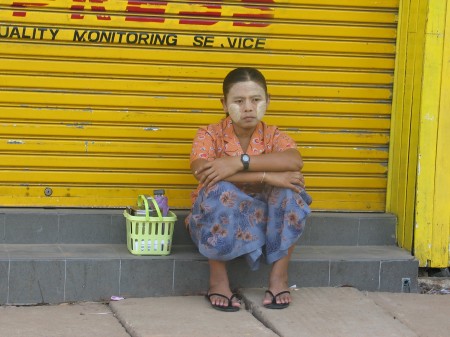
Last week, the EU eased its long-held travel and financial restrictions on four Burmese ministers and lifted the ban on high-level visits to the country. The decision follows the swearing-in of a new government in March and is the first partial reversal of punitive measures against the suppressive regime. So, are things finally heading in the right direction?
It’s easy to suggest otherwise. The elections in November last year were neither free, nor fair. The new, nominally civilian regime is still dominated by the military elite. Praise for Aung San Suu Kyi’s release from house arrest is hardly due, given the regime’s bizarre reasoning for extending her detention in the first place. And ethnic conflicts are still a sad (and under-reported) reality in the resource-rich country. But some subtle changes give hope for restrained optimism. Perhaps most importantly, powers are now distributed more widely. In the past, literally everything – from defense and security issues to social and economic matters – had been controlled by a single, authoritarian leader. Now there are four (partially overlapping) key centers of power: the presidency, the military, the parliament and the Union Solidarity and Development Party.
These changes are not the result of sanctions, but most likely part of Than Shwe’s exit strategy. In an attempt to avoid the miserable fate he imposed on his predecessor, Than Shwe has put in place constitutional arrangements that make it difficult for a single person to emerge as a new strongman. Few genuinely believe that the bans and restrictions, some of which have been in place for almost two decades, will lead to change. Those who keep supporting such measures do so for ideological reasons: they are afraid of sending the wrong political signal. But by clinging to the status-quo, they run the risk that sanctions will become an end in themselves, with grave consequences.
A month before the EU’s announcement, the International Crisis Group released a report that strongly condemned the West’s failed policies of sanctions and isolation. It argued that instead of bringing about change, the isolation has led to a freeze in the situation and might even have helped the military leadership keep its hold on power. Economic sanctions have reinforced the negative impact of the government’s ill-conceived policies and provided a convenient excuse for the government’s own failures. More involvement may have promoted more development, but also an infusion of new ideas and a certain degree of extraversion, not least within the country’s elite.
The members of the EU Council took the recent developments in Myanmar as a welcome opportunity to induce some long overdue changes. It’s a tiny step towards dialogue, and as such is certainly welcome. Chances that this will develop into something more than incremental change remain meager, but these are better than they have been in many years.

